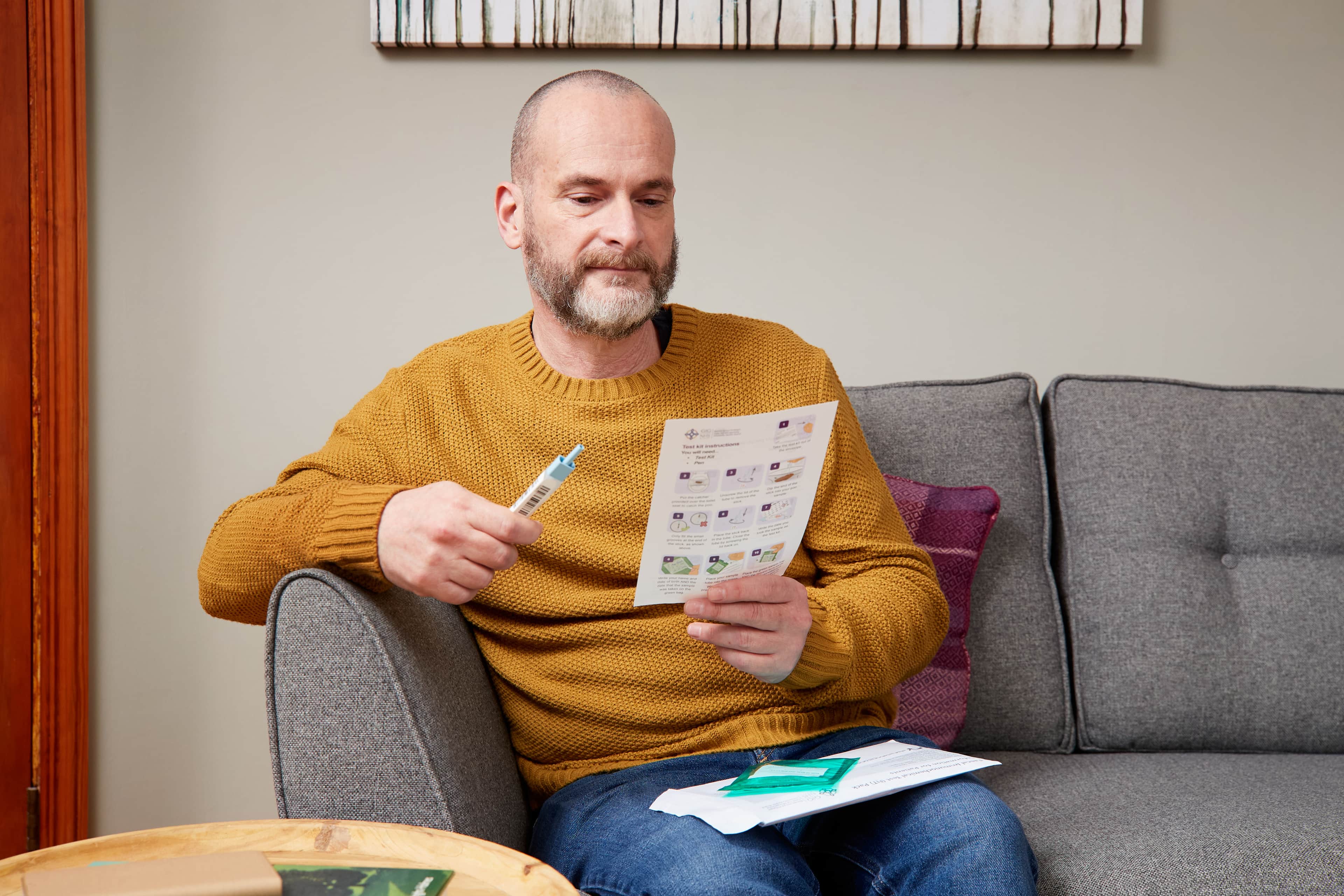
In April 2024, we launched Phase 2 of the TET programme, focused on earlier diagnosis of bowel cancer. Cancer Research UK, supported by the Bowelbabe Fund, has funded five NHS health system teams, all collaborating with an academic partner who will support the co-design of the intervention, evaluate the process, outcomes, and impact of implementation, generating the evidence required to transition effective innovations across mainstream practice. Phase 2 will continue through to late 2026.
A key development for phase 2 was to appoint health system delivery teams before we had finalised interventions. This enabled us to build in a co-design stage supported by a single academic partner across all Phase 2 projects.
Read more about Phase 1Test Evidence Transition programme overviewWe have commissioned five health system delivery teams, who are made up of clinical and non-clinical experts, to implement bowel cancer service innovation projects with the potential to improve screening, surveillance, and symptomatic pathway delivery. These teams are:
Comparing different approaches to FIT-based risk stratification for cancer investigation, drawing on learnings from their local risk stratification model COLOFIT.
Optimising discussions about bowel health during the primary care annual health check for people with a learning disability
Improving the management of the endoscopy booking system and bowel cancer surveillance list.
Press release: NHS Borders - Innovative bowel project could help patients across the UK(PDF)
Evaluating the impact of changes to the symptomatic FIT pathway in response to a change in national guidelines.
Press release: NHS Greater Glasgow and Clyde - Innovation to help bowel cancer patients(PDF)
Improving follow-up communication with people after a positive screening result to support their decision-making in attending an appointment with a specialist screening practitioner
For more information about TET Phase 2 and the Bowel cancer diagnostic pathway View the Test Evidence Transition – Phase 2 infographic (PDF, 168 KB)
Phase 2 has a single academic partner - a collaboration between The University of Oxford and The University of Cambridge - to work across all five projects. The team is led by principal investigators Dr Brian Nicholson, Dr Anna Dowrick and Dr Sharon Tonner of the Nuffield Department of Primary Care Health Science at the University of Oxford, and Dr Juliet Usher-Smith of the Department of Public Health and Primary Care at the University of Cambridge. The team bring expertise in key areas such as primary care and bowel cancer, co-design, implementation science, health economics and mixed methods research.
In addition to supporting each individual Phase 2 project, the academic partner will analyse data and harness insights across all projects to co-create programme-level outputs.
Find out more about our academic partner
For Phase 2, the health system teams, and their wider stakeholders will collaborate with our academic partner and Cancer Research UK to co-design their innovation. The co-design process is intended to ensure:
The innovation to be tested is already supported by evidence of effectiveness, and has the best chance of being adopted in the real-world health service delivery contexts, and can be feasibly implemented and evaluated
a methodological approach informed by relevant frameworks and best practice (implementation and behavioural science, NHS research and service evaluation).
appropriate patient and public involvement.
robust research governance and project management.
Each project’s innovation of focus will fall within the following categories:
approaches to target and reduce unwarranted variation in the national bowel cancer screening programme uptake and adherence.
improving attendance at screening initiated diagnostic investigation where there is evidence to suggest barriers and inequalities in attending colonoscopy appointments.
improving screening and surveillance optimisation in higher risk population groups, including the management of genetic conditions, e.g., such as Lynch syndrome.
improving risk assessment of symptomatic patients presenting to primary care.
innovative primary-secondary care engagement strategies to support communication and continuity.
other service innovations to support the delivery of optimal symptomatic pathways that can transform clinical practice at a local level.
Each project will follow the same process of:
Co-design
Project set-up and innovation preparation
Implementation and service delivery
Data collection
Interim analysis and reporting
Continued data collection, analysis and evaluation
Final reporting
Dissemination of outputs
The timeline for each individual project varies, allowing projects to meet the specific co-design, implementation and data collection requirements of their respective innovations. This tailored approach ensures that each project generates a robust evidence base to support future adoption and scale-up. Phase 2 is projected to conclude by December 2026, although some project deliverables will be completed sooner.
If you have any questions about the TET programme, please contact us at TET@cancer.org.uk.